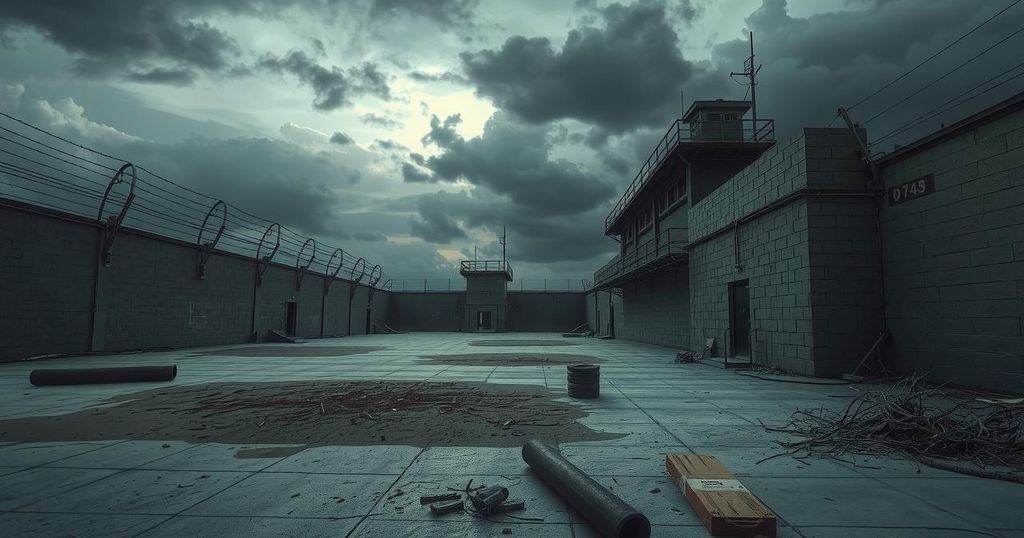Mass Prison Escapes Raise Security Concerns Amid DRC Conflict Escalation

Mass prison escapes in Eastern DRC have caused public panic as M23 rebels advance, resulting in over 4,000 inmates fleeing from multiple prisons during the chaos. Security concerns are heightened, with local populations fearing violent reprisals from escaped prisoners. The situation reflects a significant escalation in the region’s longstanding conflict, drawing critical humanitarian concerns.
Recent mass prison escapes in the Democratic Republic of the Congo (DRC) have incited widespread panic amid ongoing conflict. As Rwanda-backed M23 rebels seized two major cities in Eastern DRC, jailbreaks at four regional prisons allowed over 4,000 inmates to flee, exacerbating security concerns among civilians. These events have unfolded against a backdrop of intensified fighting between M23 and the Congolese army since January, leading to chaos and disorder.
The destabilization caused by M23’s advance has left prison facilities vulnerable, as guards abandoned their posts, facilitating inmate escapes. Notably, a significant incident occurred at Munzenze prison in Goma, resulting in many female inmates being subjected to horrific violence. Subsequent prison breaks followed in cities such as Bukavu and Kabare, with the latest escape reported from Kalemie.
Prisoners who have evaded capture include individuals convicted of serious crimes such as murder and embezzlement. A security analyst based in Bukavu suggested these escaped individuals could seek vengeance against victims or accusers. The threat of retribution enhances the alarm felt by local communities about the potential for increased violence.
In an interview, a Goma escapee described the desperate conditions within the facility: “Even though the police were killing some of the escapers outside the prison, I told myself that human beings only die once.” This grim determination underlines the extreme measures prisoners were willing to take to escape.
Reports from Goma and Bukavu indicate an influx of criminal activities following the jailbreaks, prompting residents to express their fears. One Bukavu resident noted, “Crime has reached a worrying level in some parts of Bukavu… that worries us,” reflecting the growing perception of danger.
The national police forces in Goma and Bukavu have ceased operations following the takeover by M23. In response to the chaos, the Alliance Fleuve Congo, a coalition of militias, has promised to restore order and rehabilitate detention facilities. However, public frustration has led to vigilantism, with some alleged offenders being violently attacked by mobs.
At a recent security meeting, Julien Katembo Ndalieni, the appointed mayor of Goma, decried the rise of mob justice and urged restraint among citizens, warning that innocent individuals could fall victim to unfounded accusations.
The unrest in Eastern DRC signals a significant escalation in a long-standing conflict, claiming approximately 7,000 lives and displacing countless families. M23, alongside over 100 armed factions, has emerged as a significant force in this turmoil, claiming to represent minority interests while facing accusations of Rwandan support, which Rwanda denies.
In conclusion, the recent mass prison escapes in the Democratic Republic of the Congo amid escalating conflict underscore critical security concerns. The swift advance of M23 rebels and subsequent jailbreaks have fostered public panic and raised alarm over potential violence and retribution. The situation in Eastern DRC represents one of the most severe crises in years, highlighting the ongoing humanitarian catastrophe and calling for greater attention from the international community.
Original Source: www.theguardian.com







